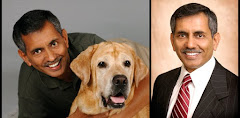Did you listen
to NPR “Morning Edition” yesterday (Friday, April 3)? One of the segments
featured Tony Blinken (Deputy Secretary of State, hence a top official in
the State Dept.) who highlighted some of the critical aspects of the nuke
accord that had been reached with Iran just a few hours earlier.
In
response to host Steve Inskeep’s question “If Iran violates the deal…would the
sanctions automatically snap back,” Mr. Blinken said, “Yes, there is going to be
automaticity in the so-called snapback…if Iran reneges on its commitments.”
Well, use
of the uncommon word automaticity (pronounced aw-tuh-muh-TIS-ih-tee) raised the eyebrows of not only yours truly
(and, presumably, of at least tens of thousands of other listeners) but also of
host Steve Inskeep who, at the end of the interview some 20 seconds later,
commented “OK, Tony Blinken is Deputy Secretary of State and I think the first
person ever to use the word automaticity on Morning Edition. Mr. Blinken,
thanks very much...” [Click here for the transcript.]
Some of the ways in which a single word can greatly impact a discussion or make one's point indelible: People with a strong command of the language and who
speak with confidence will, often a time, really push the envelope in
their choice of words, especially when they are trying to galvanize their audience. (This is a central aspect of my popular keynote "The Power of the Spoken Word.") Here are three quick examples of how a single word can help make one's point indelible, if not airborne:
- Using an ordinary word in a most extraordinary and imaginative way. (For
instance, my post of Jan 16, 2013, which is about famous Spanish painter Joan Miro proclaiming
that he is going to “assassinate
painting.”)
- Using an uncommon and high-caliber
word but one that is sure to be understood by the audience because
of the context or use of synonyms. (In the case
of Tony Blinken’s utterance, it is obvious to listeners that automaticity
is the noun from the word automatic which had been used by Inskeep just seconds earlier). And this is exactly what my book is about. Just click here and look at the "Workplace Examples" on the sample pages.
- Creating a word, often on the spot, that is (i) going to be readily understood by the audience, and (ii) likely to stir them, even fire
their imagination. This immediately brings to mind a spectacular
moment in a Sunday morning talk show during the 2012 presidential-debate-season
when a guest used an extremely fresh and stirring adjective derived from the name of a famous movie
character. It sure left the audience spellbound, so much so that the host
interrupted the guest to comment on that particular word! Will feature
that video clip in an upcoming post. Stay tuned!
Of
course, these three examples are by no means a comprehensive list of how a
single word can make a point indelible.
© Copyright 2015 V. J.
Singal

